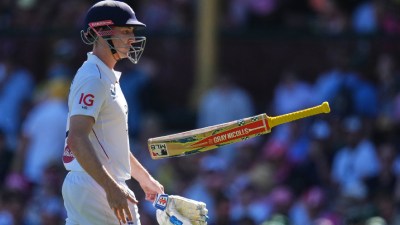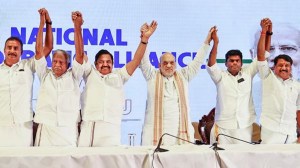Colonel held a mirror to the Board
Conventions in the Indian sporting world present interesting case studies...

Conventions in the Indian sporting world present interesting case studies, when efforts are made to mirror them in the 8216;real8217; world. Take the recent controversy over chief selector Dilip Vengsarkar. The corporate world is equipped to deal with such issues, because the regulations are in place. In the unorganised world of Indian sport, however, rules are yet to be institutionalised 8212; this, despite the billion-dollar television rights and million-dollar endorsements.
Vengsarkar is certainly a professional of repute. Here is a man of cricketing experience and reasonable foresight, who can indeed separate the bad apples from the good, and do this in an impartial manner. Ultimately, the job of selecting a team is like that of any top management official in any corporation. A selector8217;s duties would involve being aware of new talent, of form and fitness of current players, of conditions for forthcoming tours. It also involves touring to observe action first-hand at national and international venues. With the cricketing itinerary now stretching virtually throughout the year, this job becomes an almost full-time occupation. To that extent, it would be impractical 8212; and certainly a disservice to cricket 8212; to employ part-time selectors. It follows from this, that the Board of Control for Cricket in India BCCI would be doing a disservice to selectors if it avails itself of their services in a full-time capacity on an honorary basis.
Asking Vengsarkar to stop writing wasn8217;t such a bad idea. After all, he should not be seen commenting on the very people whose future he will soon be determining. It8217;s like the EC frowning on practices that could influence voters8217; minds. But the Board should have also been sensitive to Vengsarkar8217;s financial status.
Here it may be useful to study the issue against the backdrop of international practice. Professional management is today the accepted norm. The recent Doha Asian Games were basically 8216;managed8217; by an Australian conglomerate, which had drawn data from its Sydney 2000 Olympics experience. British and Australian organisations have pitched for management jobs in the 2010 Commonwealth Games in New Delhi. The Brits offer their Manchester Commonwealth Games expertise, as well as the expertise they are gaining in the build-up to the London Olympic Games. The Aussies have the Sydney and Melbourne Games experience to back them. If India accepts their services, it can hold them to account for any glitches.
European soccer, especially the English Premier League EPL, is a prime example of how professionalism has taken over the game8217;s management. The EPL is a professional body, managed as a corporation, answering to the many needs of the players, clubs and fans alike. It remains accountable to its shareholders for the billions of dollars that pass through its account books. It is similar in professional golf.
It is only when it comes to the BCCI that the set-up is a curious mix of market-oriented and amateur approaches, leading to situations where a national coach starts his work without a contract in hand, as in the case of Greg Chappell. It has no checks and balances in place, no fixed guidelines stipulating how a professional would be paid, and even the players8217; cheques are often made out as and when accounts are done. The BCCI 8212; registered under the Societies Registration Act as a non-profit organisation, depends on elected officials and hence cannot pay them. The entire system gets tilted towards a fringe-benefits world with inescapable conflicts of interest.
When the professional I-League, Indian football8217;s supposed equivalent of the J-League, was launched this year, extraordinary problems suddenly surfaced. If it was meant to be a professional body, would there be a general contract for players drawn up and vetted by the All India Football Federation AIFF? Will there be an insurance clause? Will the administrators be accountable to anyone? The clubs, which had borne most of the expenditure entailed in raising the game to the levels required by the Asian Football Confederation, shouted themselves hoarse, but the AIFF remained unresponsive. Meanwhile, the league continues with its amateur ways despite its new nomenclature.
The BCCI will have to sort out its identity crisis. On the one hand, it pretends to be a social body, a public charity. On the other, it is driven by the objective of creating profit. If profit is its impelling force, then it should come under the Companies Act. If charity is the byword, it should stop this 8216;shamateurism8217;. The Vengsarkar issue has held the mirror to an unacceptable state of affairs. And unless things are sorted out, Indian cricket will remain in a limbo.
sujit.bharexpressindia.com
- 01
- 02
- 03
- 04
- 05































